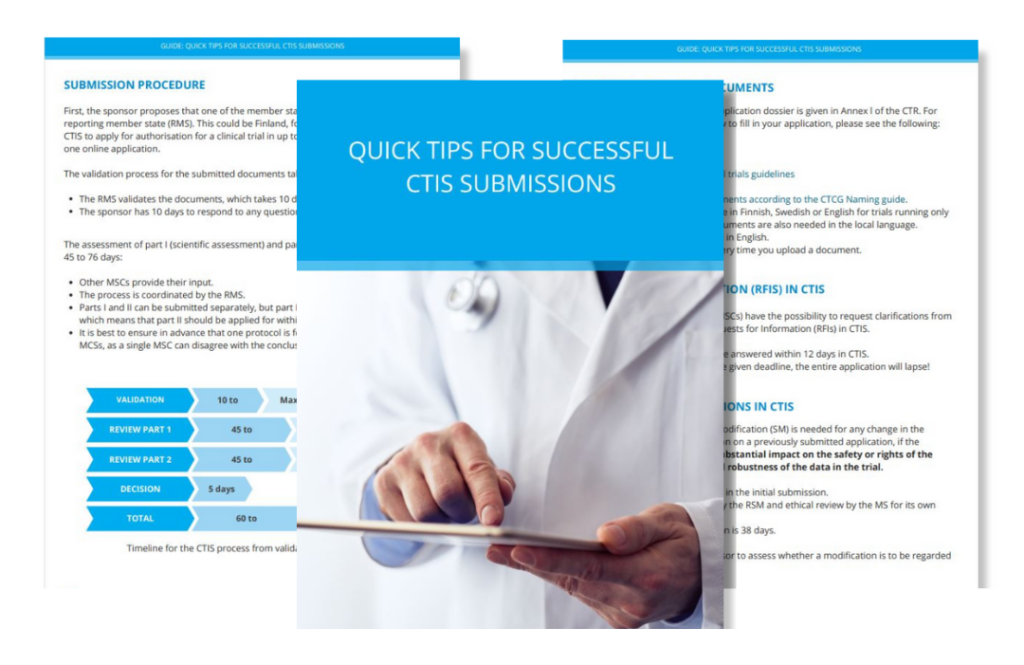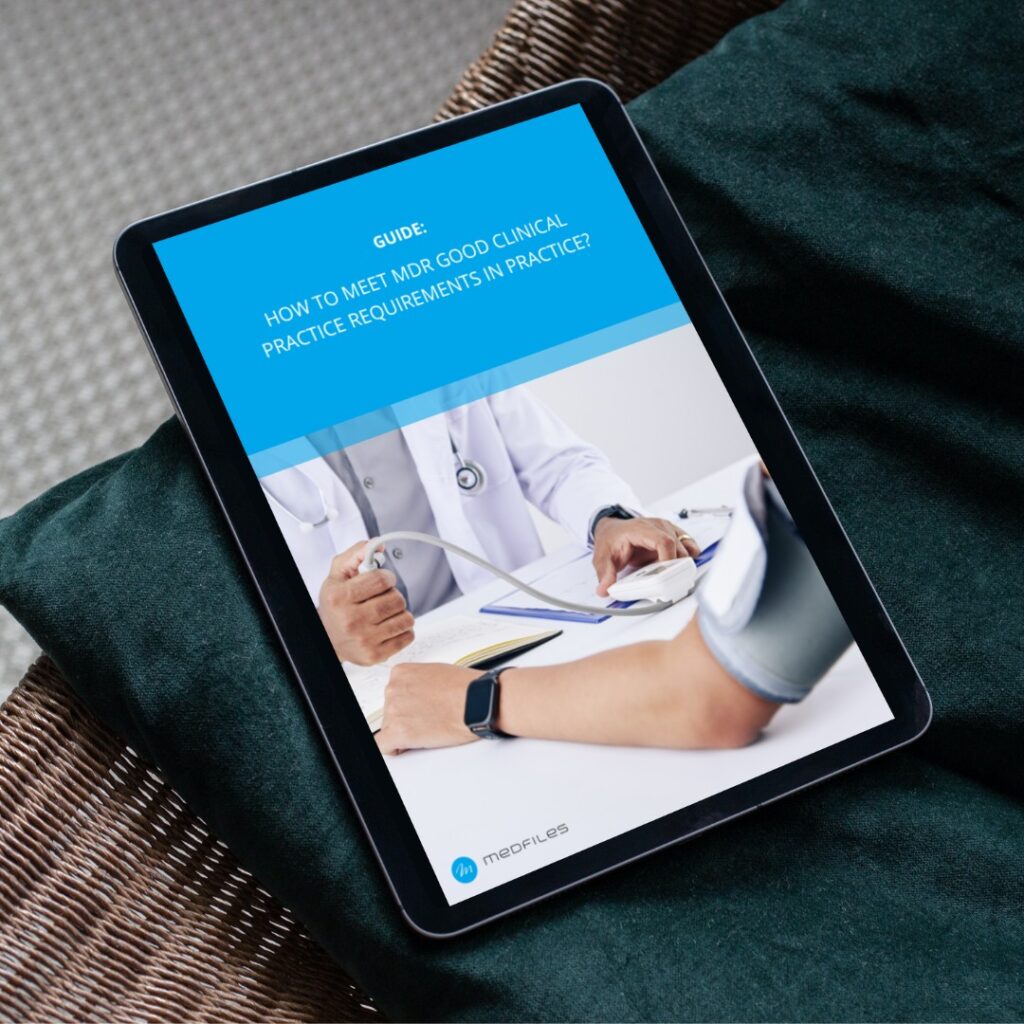Investigator-initiated studies (IIS) play a valuable role in the development of new medicinal products and medical devices. In an Investigator-initiated study, the investigator is the driving force behind the clinical study. The investigator not only conceives the research idea but also takes charge of developing the protocol, assuming the role of a ‘sponsor-investigator’. The sponsor-investigator is responsible for both initiating and overseeing the clinical study, whether independently or as part of a team.
If you are considering starting an IIS, there are several key points to keep in mind to ensure a successful and ethical study.

1. Define your research question
The foundation of any investigator-initiated study lies in a well-defined research question. Before delving into the details of the study design, make sure that your research question is clear, focused, and addresses a gap in existing knowledge. This will guide your study objectives, methodology, and the overall trajectory of your research. Keep it simple, one trial seldom can give answer to multiple questions.
2. Go through the ethical aspects of the study
Ethical considerations are paramount in clinical studies. As a principal investigator, you must obtain ethical approval from institutional review boards (IRBs) or Ethics Committees (ECs). Develop a comprehensive protocol that outlines how you will protect the rights and well-being of study participants, ensuring that your clinical study complies with ethical standards and regulations.
3. Ensure funding and resources for the clinical study
Conducting an investigator-initiated study requires financial support and resources. Seek out funding opportunities from your own institute, government agencies, private foundations, or industry partners. A well-thought-out budget should cover expenses related to personnel, materials, data management, monitoring, fees to IRB/EC and authorities, and analysis. Additionally, ensure that you have the necessary infrastructure and support from your institution to carry out the study effectively. Contact a Contract Research Organisation (CRO) well in advance to guide you through potential pitfalls, setting-up proper study documentation, and help you in successfully executing the study in compliance with regulations.
4. Consider partnerships
Collaboration is a cornerstone of successful investigator-initiated studies. Establish partnerships with other investigators, research institutions, and relevant stakeholders. Collaborative efforts can enhance the recruitment of study participants, provide access to diverse patient populations, and foster a multidisciplinary approach to problem-solving.
5. Develop a comprehensive study protocol
A comprehensive study protocol serves as the roadmap for your research. Clearly outline the study design, inclusion and exclusion criteria, endpoints at each visit, and methods of data collection. A robust protocol not only ensures the scientific validity of your study but also facilitates transparency and reproducibility, which are essential components of high-quality research.

Free Guide: Quick tips for successful CTIS submissions
The CTIS portal brings new responsibilities and requirements and raises questions. We created a practical guide on how to successfully submit your clinical trial applications. The information is especially targeted at academic researchers conducting clinical trials in Finland.
6. Plan for study data management and analysis
A well-organised approach to data management and analysis is critical for deriving meaningful conclusions from your study. Implement robust data collection methods, establish secure storage systems, and outline a clear plan for statistical analysis. Engage with statisticians and data managers early in the study planning phase to ensure the appropriate handling and interpretation of your research data.
7. Consider clinical study regulatory requirements
Learn about the applicable regulations and requirements, such as study registration, informed consent, and reporting of adverse events. Note the requirement for submitting your study via CTIS (if the study involves a medicinal product or a combination product in EU) or to local ECs and authorities (if it involves a medical device). Compliance with regulatory standards not only ensures the credibility of your study but also facilitates the eventual translation of research findings into clinical practice.
8. Prioritise patient-centricity in the study
Consider incorporating patient perspectives in the study design, engaging patients in activities, and ensuring that your trial outcomes are meaningful and relevant to the patient community and clinical practice. This patient-centric approach not only enhances the impact of your study but also aligns with the evolving landscape of patient-centred healthcare.
9. Anticipate challenges and mitigate risks
Clinical studies are inherently accompanied by challenges and risks. Anticipate potential obstacles and develop strategies to effectively mitigate risks. Whether addressing recruitment difficulties, managing unexpected adverse events, or adapting to changes in study design, taking a proactive approach to problem-solving will enhance to the overall success of your investigator-initiated study. Consider the relevance of adaptive study design.
10. Think about closing activities before initiation of the study
There are numerous activities that need attention once the study is closing, including closing all sites, collecting excess materials such as investigational products, and notifying various registries and portals, among other things.
It is important to determine which party or parties own the results and who is responsible for archiving (source data, Trial Master File, etc.). The dissemination of clinical study findings is a fundamental aspect of the scientific process. Plan for effective communication strategies, including publishing in peer-reviewed journals, presenting at conferences, and engaging with the broader scientific community. The cornerstone of successful dissemination is a well-prepared clinical study report.
In conclusion, initiating an investigator-initiated study is a commendable endeavour that requires careful planning, ethical considerations, and a commitment to scientific discipline. By taking these key considerations into account, you will be better able to navigate the complexities of IIS and conduct a successful study.
If you are struggling with complex requirements or lack of resources, Medfiles’ Clinical Team is happy to provide comprehensive and tailored guidance and support throughout the clinical study from submission to the clinical study report. Our expert team with up to 20 years of experience in clinical studies ensures the study meets all regulatory requirements.

Free Guide: HOW TO MEET MDR GOOD CLINICAL PRACTICE REQUIREMENTS IN PRACTICE?
Do you work with medical devices and need information on the MDR/ISO 14155:2020 good clinical practice requirements? The MDR states that clinical investigations must be performed according to good clinical practice. In addition to observing the requirements set in the MDR itself, sponsors must also be aware of the requirements set in the ISO standard. We have created a guide on what you need to know about these requirements regarding the clinical trial set-up, monitoring and ending phase.


